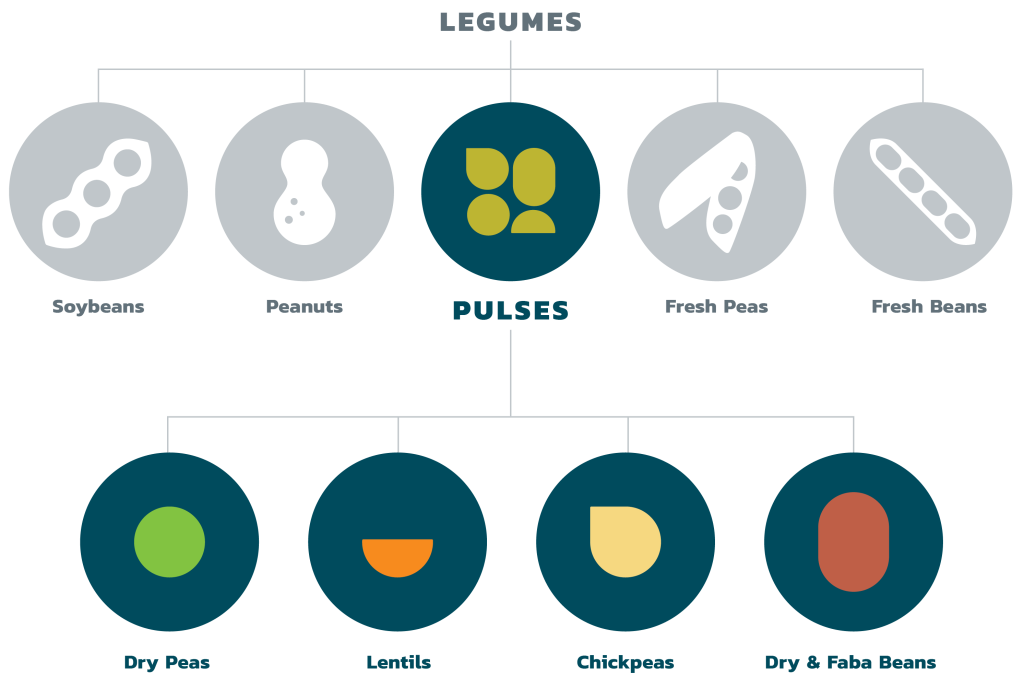Bean-Geeks and Word-Geeks Rejoice: Here’s the Name Nuance
While people (including us) often use the words “legumes,” “pulses,” and “beans” interchangeably, technically these terms have different and distinct meanings.
Legumes are the broadest category that includes all the plant parts from the Fabiacaea family (also known as the Leguminosae, legume, bean, or pea family). They are characterized by having multiple “seeds” in a pod.
Pulses are the edible seed a legume. Pulses include DRIED beans, peas, lentils, and chickpeas.
Oilseeds include soybeans and peanuts (which is a legume not a nut). Pulses are virtually fat-free. The edible seeds of soybeans and peanuts have a higher fat content.
All good, but it’s far more important that we eat them than what we call them.
Dr. Michael Greger of NutritionFacts.org recommends including a serving of legumes at EVERY meal.
As his short video explains, “the intake of legumes—beans, chickpeas, split peas, and lentils—may be the single most important dietary predictor of a long lifespan.” He has also compiled a fascinating video gallery on these Fabiacaea fruits (that’s right, legume seeds are technically fruit, botanically speaking).
Check out Dr. Greger’s bean-based recipes and Ellen Kanner’s free recipe eBook Beans: A Handful of Magic – Vegan Recipes From Over the World.

Plant-Based Proteins: More Food, Less Harm

This post is brought to you as part of our Planetary Pulse Project to increase awareness and consumption of these inexpensive, accessible, sustainable, and highly resilient protein superheroes, especially as an alternative to animal-based foods.
Despite “pulse” being in the name, we support all legumes, seeds, nuts, and other plant-based proteins. In addition to serving as a staple food in traditional cuisines around the world over, legumes are also a prime ingredient in plant-based meat and milk alternatives (from old school delights like tempeh, tofu, and soymilk, to modern wonders like the Beyond Burger and Just Egg, which make use of the versatile mung bean protein).
Indeed, because of their affordability, accessibility, diverse cultural relevance, and nutritional and environmental benefits, experts are now calling legumes the best food to most effectively address the double crises of climate change and global food insecurity.
The Planetary Pulse Project is our advocacy, hunger relief, and food security campaign created in partnership with Seed Programs International to distribute free and low cost legume seeds to farmers and growers in need around the world. The project provides a variety of protein-packed beans, peas, chickpeas, and lentils.
In its first year, the Planetary Pulse Project provided 33,310 packets of legume seeds to growers in need in five countries. Recipients included four schools in Zimbabwe, a hospital farm in Haiti, a community of Cameroonian refugees in Nigeria, two women farmers’ cooperatives in Uganda, and multiple community gardens in 14 U.S. states. Read the full impact report.
The Planetary Pulse Project needs more sponsors — click here to donate!
Share this post to spread the word about the power of pulses, the benefits of beans, and the glory of legumes!

